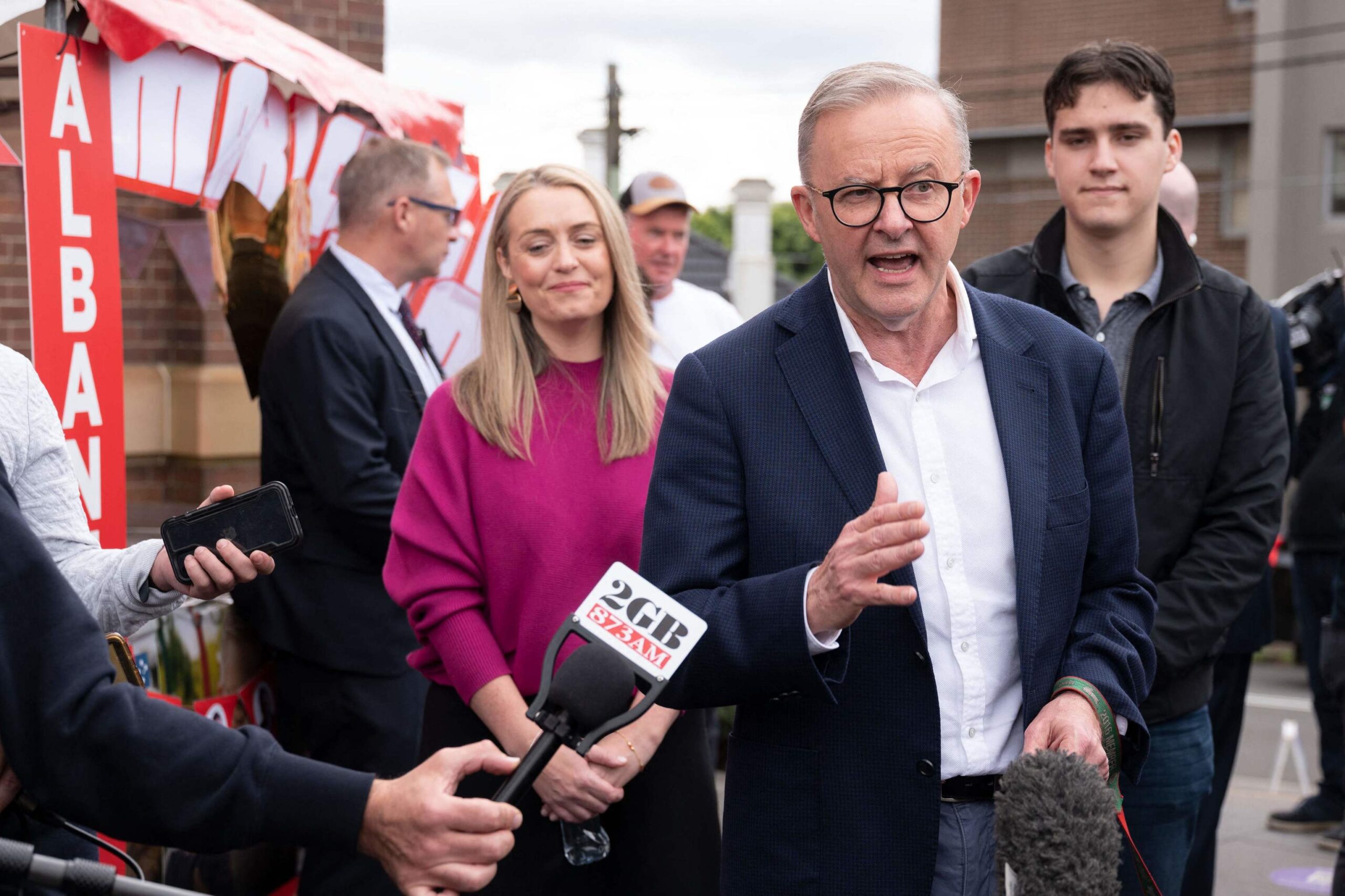He was raised in subsidized housing by a single mother on a disability pension. As a teenager he found out that his father, whom he thought had died in a traffic accident before his birth, was alive and at the age of 30 he found him in Italy. He is a leftist, a defender of the LGBT community and passionate about rugby. He advocates for a free health system, for giving more voice to indigenous peoples, rejects any asylum seeker who arrives by boat and considers China to be the main threat to his country. Anthony Albanese, leader of the Labor Party, will be Australia’s new prime minister.
This 59-year-old progressive political veteran has put an end to almost a decade of Conservative government, winning the Liberal-National coalition at the polls, led by Prime Minister Scott Morrison, who will not renew a second three-year term.
This Saturday, 17 million Australians were summoned to the polls. Unlike elections in many countries, in Australia voting is compulsory under a fine of 20 Australian dollars (14 euros) for those who decide to stay home. According to the first vote projections, the Albanese Labor Party would manage to get close to 74 seats, very close to the 76 that grant an absolute majority, so it will have to seek alliances in the coming days between the minority parties if it wants to govern in a majority .
The forecasts of the polls have come true and Labor, located on the center-left spectrum, have managed to kick Morrison (54 years old) after a tough electoral campaign where the many controversies that have surrounded the outgoing prime minister have outweighed than its applauded pandemic policies, adopting a strict closed-border approach to Covid, which helped Australia achieve one of the lowest mortality rates in the world. He later knew how to successfully adapt to the Western strategy of learning to live with the virus and getting the economy to grow again at a pre-pandemic rate.
Australia’s helm will be taken by an economist who won his first seat in 1996. In 2007, when Labor came to power under former Prime Minister Kevin Rudd, Albanese became infrastructure and transport minister. In Rudd’s brief second spell in 2013, he was promoted to deputy prime minister.
During the last term in office at the head of the opposition, the leader has promised to increase spending to improve the care of the elderly in the country, revitalize the manufacturing industry, provide cheaper childcare and improve gender pay equity. He also pledged to hold a referendum on enshrining in the constitution an Indigenous Voice in Parliament, an advisory body that would give Aboriginal and Torres Strait Islander people, who separate Australia from the island of New Guinea, a role in formulation of policies that affect them.
But despite Albanese’s promises of more social leadership, many analysts say he will continue the harsh immigration policies of his predecessors. The Australian government has been moving refugees to isolated camps on small Pacific islands since 2013. In its 2021 annual report on refugees in Australia, Amnesty International said that at least 241 refugees and asylum seekers were being held in overseas facilities.
Morrison always defended that policy and toughened it when he arrived in Canberra, forcibly transferring many refugees to makeshift detention centers that were opened in old hotels. In one of Melbourne, the Serbian tennis player Novak Djokovic ended up arrested at the beginning of the year, who starred in a historic legal battle against the Australian Executive to be able to play the Australian Open without being vaccinated.
In the eyes of the world, Morrison won the court match against Djokovic by finally getting him deported. But that game against the best tennis player in the world was a political drain on the prime minister and much criticism among his electorate. The son of a police officer who grew up in Sydney’s seaside suburbs has also been swept up in scandals like his vacationing in Hawaii during the devastating 2019 bushfires; or when he remained silent after a former member of the Liberal Party accused a colleague of hers of having raped her in a ministerial office in 2018 and her political formation pressured her not to report it.
Nor did the leaked messages from fellow party members leaked during the election campaign help to improve Morrison’s decline in popularity. They accused him of being an “autocrat” and a “thug without a moral compass.” Now a new stage opens with Albanese at the head of one of the Pacific powers.
Conforms to The Trust Project criteria
















